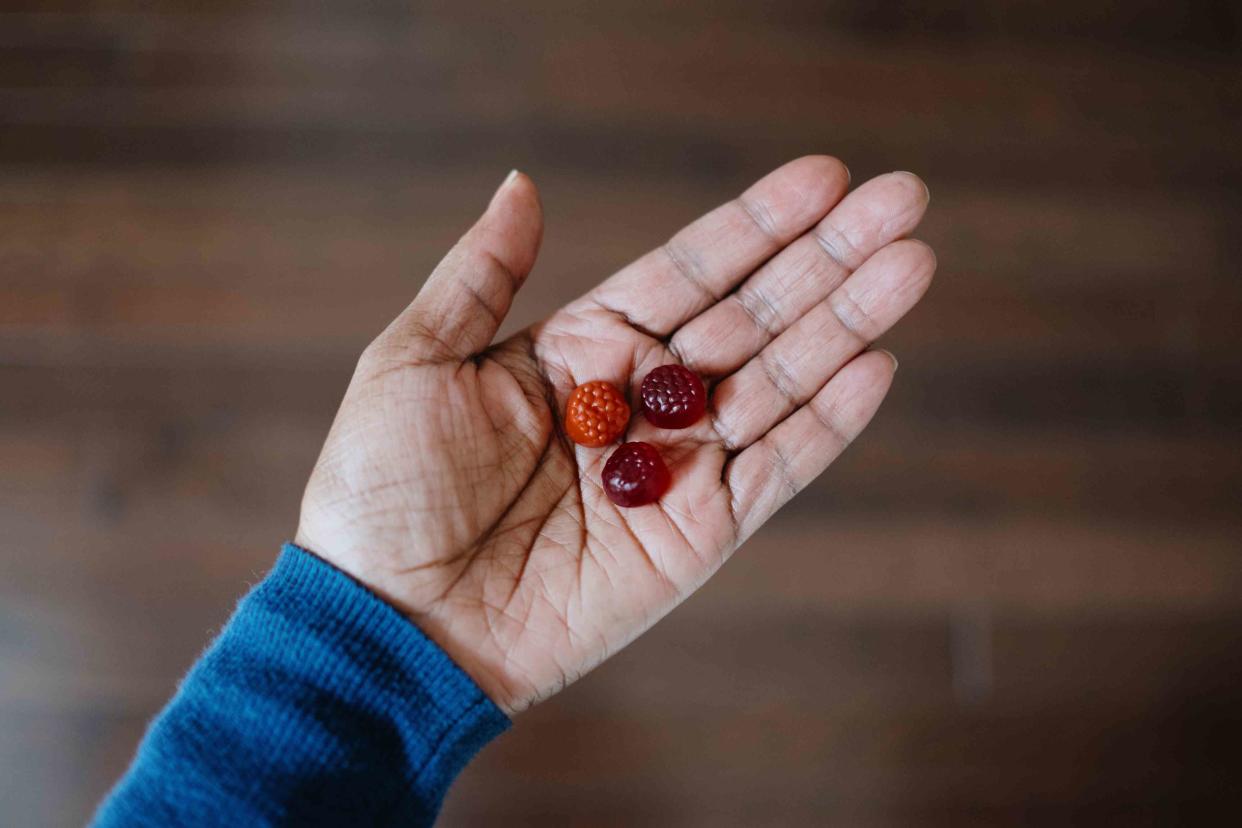Two Decades of Research Shows Where Multivitamins Fall Short

Grace Cary / Getty Images
Fact checked by Nick BlackmerFact checked by Nick Blackmer
Key Takeaways
A new study by the National Cancer Institute found that multivitamins do not help you live longer.
The study showed no reduction in death from cancer, heart disease, or cerebrovascular diseases due to multivitamin use.
Multivitamins may still be beneficial for people with nutritional deficiencies or specific health conditions affecting nutrient absorption.
A new study by researchers at the National Cancer Institute (NCI) found that taking multivitamins does not help you live longer.
“Many adults in the United States take multivitamins with the hope of improving their health,” lead study author Erikka Loftfield, PhD, said in a statement. “However, the benefits and harms of regular multivitamin use remain unclear.”
Billions of dollars are spent in the U.S. on multivitamins each year despite a lack of evidence for their benefits. Loftfield said that previous studies of multivitamin use and mortality yielded mixed results and have been limited by short follow-up times.
For the new study, Loftfield and her team analyzed data from nearly 400,000 U.S. adults who agreed to be tracked for over 20 years. The study was published in JAMA Network Open.
The data for the study came from three large, geographically diverse prospective studies involving 390,124 people in the U.S. The participants were generally healthy, with no history of cancer or other chronic diseases.
In addition to no lowered risk of overall death, the study also showed that multivitamin use did not affect death from cancer, heart disease, or cerebrovascular diseases. The results were adjusted for race and ethnicity, education, and diet quality.
Related: Multivitamins Don't Do Much For Your Health, New Study Shows
Should You Ditch Your Multivitamin?
You probably didn’t expect multivitamins to help you live forever, and the fact that they can’t isn’t necessarily a reason to stop taking them. Loftfield said that despite finding multivitamins don’t reduce mortality risk in healthy adults, they may still be worthwhile for some groups, like people with nutritional deficiencies.
On average, adults under-consume vegetables, fruits, whole grains, and calcium-rich foods, said Vanessa King, MS, RDN, a registered dietitian in Oahu, Hawaii, and a spokesperson for the American Academy of Nutrition and Dietetics. That means they lack vitamins like A, C, D, and E, as well as minerals like magnesium and potassium.
While whole foods are the best sources of these vitamins and nutrients, prenatal multivitamins are important for people who are pregnant and breastfeeding, King said. In addition, people may benefit from a multivitamin if they’re living with health conditions that impact nutrient absorption:
Chronic health conditions such as cancer and chronic kidney disease can increase the demand for certain nutrients while reducing the need for others.
Gastrointestinal illnesses such as irritable bowel syndrome (IBS) and inflammatory bowel disease can impair nutrient absorption.
Some medications can lead to nutrient loss. For example, diabetes medication metformin can contribute to B12 deficiencies.
If you fall into one of these groups, King suggests asking your doctor about whether or not a multivitamin can benefit you and your specific health needs. The same goes if you’re 60 and older, since a 2023 study suggests multivitamins can protect memory as you age.
Related: Can Centrum Silver Improve Memory in Older Adults? New Study Shows Promise
If you don’t fall into any of these groups, start by taking a good look at your diet.
“If you are thinking about taking a multivitamin, first think about what else you are putting into your body,” Michael Crupain, MD, MPH, a regent at large for the American College of Preventive Medicine and a faculty member at the Johns Hopkins Bloomberg School of Public Health, told Verywell. Are you eating vitamin-rich foods like fruits, vegetables, fish, whole grains, nuts, and seeds? “Think about how can you eat more of the foods that have consistently been associated with living a longer, healthier life in study after study.”
What This Means For You
Talk to your doctor or a registered dietitian about whether and how you can try to get the bulk of your daily nutrients from foods such as fruits, vegetables, nuts, seeds, whole grains, and fish. For many people, a multivitamin isn’t necessary.
Read the original article on Verywell Health.

